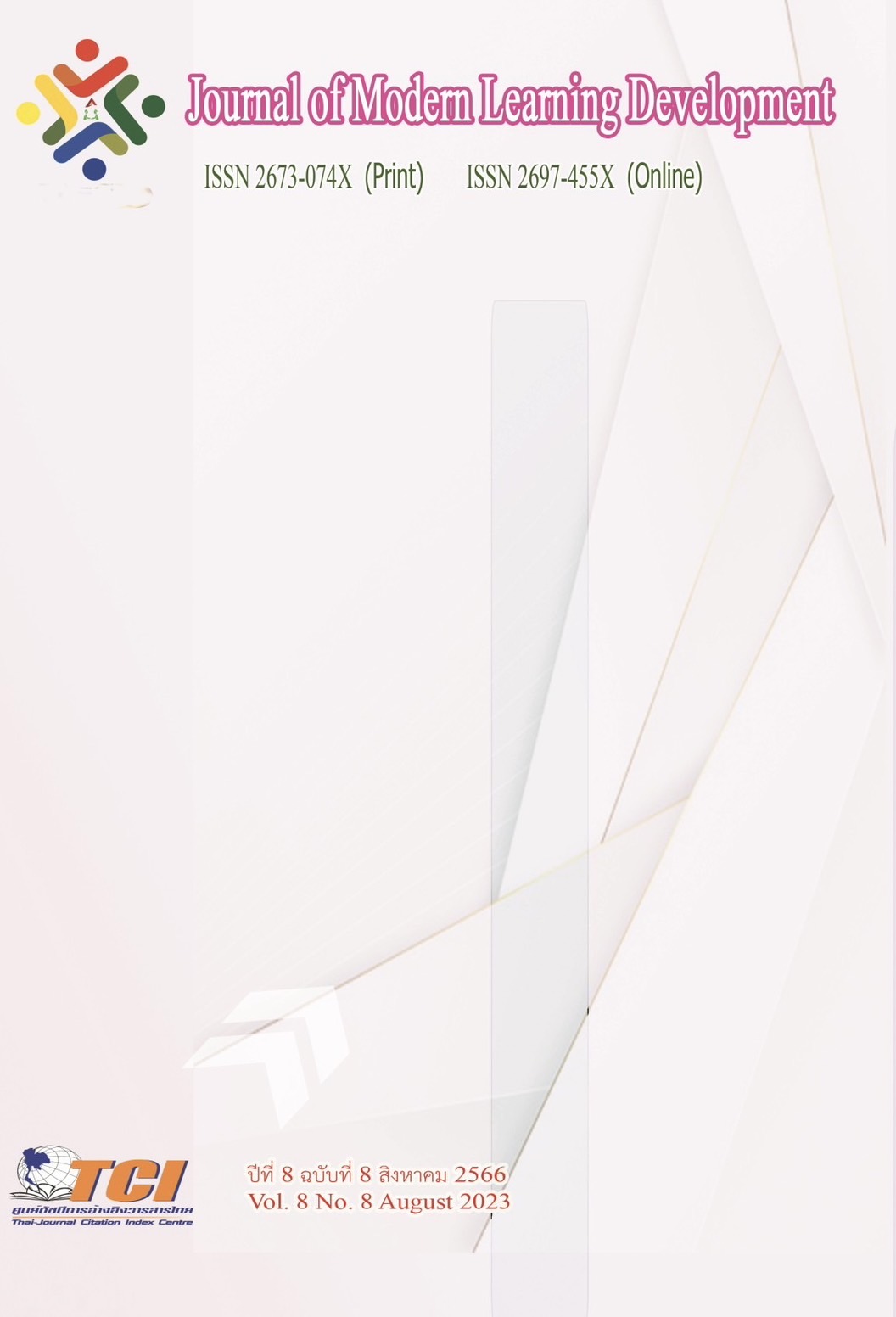Community Potential to Develop Integrated Sustainable Creative Tourism based on Sufficeiency Economy in Na Prang Village, Khlong Kwang Sub – District Nathawee District, Songkhla Province
Main Article Content
Abstract
The objectives of this research were the potential for sustainable tourism development in Na Prang Village and to develop a strategic plan for sustainable creative tourism development in Na Prang Village. This research was a qualitative research. These include: community study tour, and in-depth interviews through SWOT analysis. The data were obtained from 24 key informants belonging to all stakeholders, including public, private, community, and tourists through in-depth interviews and contents analysis.
The following were the results: 1) Na Prang village has the potential to become a sustainable creative integrated tourism destination because of the village was located in suitable location.There were cultural tourism resources and outstanding history, community participation in tourism activities because of community aware of the conservation of tourism resources. 2) The strategic vision of Na Prang Village created brand under 4 strategies which consist of environment conservation, cultural preservation and mental development, local economic development and integrated sustainable community development strategies. Na Prang was to be developed as a tourism hub in Nathawee district with environmental standards and a tourism destination based on sufficiency economy.
Article Details
References
คณะกรรมการนโยบายการท่องเที่ยวแห่งชาติ. (2564). แผนพัฒนาการท่องเที่ยวแห่งชาติ (พ.ศ.2564 – พ.ศ.2565). กรุงเทพมหานคร: คณะกรรมการนโยบายการท่องเที่ยวแห่งชาติ.
ณัฏฐพงศ์ ทองภักดี. (2550). ปรัชญาเศรษฐกิจพอเพียง: ความเป็นมาและความหมายปรัชญาเศรษฐกิจพอเพียงกับการบริหารการพัฒนา. กรุงเทพมหานคร. สถาบันบัณฑิตพัฒนบริหารศาสตร์.
ผกามาศ ชัยรัตน์ และชวลีย์ ณ ถลาง. (2560). แผนพัฒนาการท่องเที่ยวแบบบูรณาการจังหวัดอุดรธานี. วารสารวิชาการบัณฑิตวิทยาลัยสวนดุสิต. 13 (2), 235-246.
พยอม ธรรมบุตร. (2562). แนวทางพัฒนาการท่องเที่ยวเชิงสร้างสรรค์บนพื้นฐานอัตลักษณ์และวิถีไทยแบบบูรณาการอย่างยั่งยืนในเขตบางกอกน้อย กรุงเทพมหานคร. วารสารมหาวิทยาลัยราชภัฎศรีสะเกษ. 13 (3), 65-75.
พยอม ธรรมบุตร. (2560). เอกสารประกอบการเรียนการสอนเกี่ยวกับองค์ประกอบของการท่องเที่ยว. กรุงเทพมหานคร: วิทยาลัยการจัดการ มหาวิทยาลัยพะเยา.
สำนักงานคณะกรรมการพัฒนาการเศรษฐกิจและสังคมแห่งชาติ. (2562). ยุทธศาสตร์ชาติ ระยะ 20 ปี (พ.ศ.2561 - 2580). (พิมพ์ครั้งที่ 2). กรุงเทพมหานคร: สำนักงานเลขานุการของคณะกรรมการยุทธศาสตร์ชาติ สำนักงานคณะกรรมการพัฒนาการเศรษฐกิจและสังคมแห่งชาติ.
สำนักงานคณะกรรมการพิเศษเพื่อประสานงานในโครงการอันเนื่องมาจากพระราชดำริ. (2548). หลักการทรงงานในพระบาทสมเด็จพระเจ้าอยู่หัว. กรุงเทพมหานคร: 21 เซ็นจูรี
สำนักโฆษก สำนักเลขาธิการนายกรัฐมนตรี. (2564). Thailand 4.0 ขับเคลื่อนอนาคตสู่ความมั่นคง มั่งคั่ง ยั่งยืน. ออนไลน์. สืบค้นเมื่อ 10 มีนาคม 2565. แหล่งที่มา: https://spm.thaigov.go.th
สุภางค์ จันทวานิช. (2553). วิธีการวิจัยเชิงคุณภาพ. (พิมพ์ครั้งที่ 18). กรุงเทพมหานคร: สำนักพิมพ์แห่งจุฬาลงกรณ์มหาวิทยาลัย.
องค์การบริหารส่วนตำบลคลองกวาง. (2565). ข้อมูลทั่วไปของหมู่บ้านนาปรัง. ออนไลน์. สืบค้นเมื่อ 10 มีนาคม 2565. แหล่งที่มา: http://www.klongkwang.go.th/frontpage
เอื้อมพร หลินเจริญ. (2554). ระเบียบวิธีวิจัยทางสังคมศาสตร์. พิษณุโลก: คณะศึกษาศาสตร์ มหาวิทยาลัยนเรศวร.
McMillan, James. H., & Schumacher, Sally. (1997). Research in education. A Conceptual Introduction. Fourth Edition. New York: An imprint of Addison Wesley Longman, Inc.


